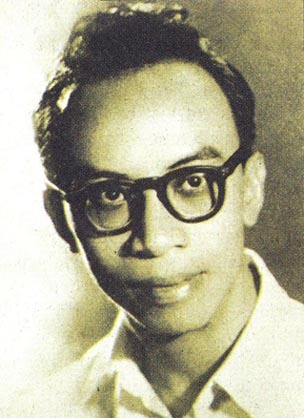 Life & Style
Life & Style

 |
| Phạm Huy Thông (1916–1988) was a Vietnamese scholar, educator, archaeologist, poet and social scientist. — Photo nhavantphcm.com.vn |
Born on November 22, 1916, in the northern province of Hải Dương, Thông received a good education. After graduating in law in 1937, he went to France to study, and then got doctorates in law, literature and a Masters of Art (History-Geography major). In Paris and Toulouse, he joined the Overseas Vietnamese Friendship Association.
After the August Revolution of 1945, he returned to Việt Nam, where he held many important positions, including as director of University of Education (1956-1967), deputy director of social sciences and humanities committee and head of Institute of Archaeology (1968-1988). In 2000, he received the prestigious Hồ Chí Minh Award for his research in archaeology.
Since his teens, Thông had been known for his literary works, notably Tiếng Địch Sông Ô (Sound of Flute by the Wu River). He pioneered a new era in Vietnamese poetry called the Thơ Mới (New Poem) period (1930-1945) and inspired many talented poets in the 1930s. His poems were influenced by and have some characteristics of 19th century Western romantic poetry. His greatest contributions include Yêu Thơ (Love for Poem, 1934), Anh Nga (1935) and Tần Ngọc (1937).
The poet passed away in Hà Nội in 1988 at the age of 72.
At the event hosted by poets Hữu Thỉnh and Trần Đăng Khoa, several poets including Vũ Quần Phương and Phương Lựu presented memoirs honouring Thông’s contribution to Vietnamese poetry. — VNS




